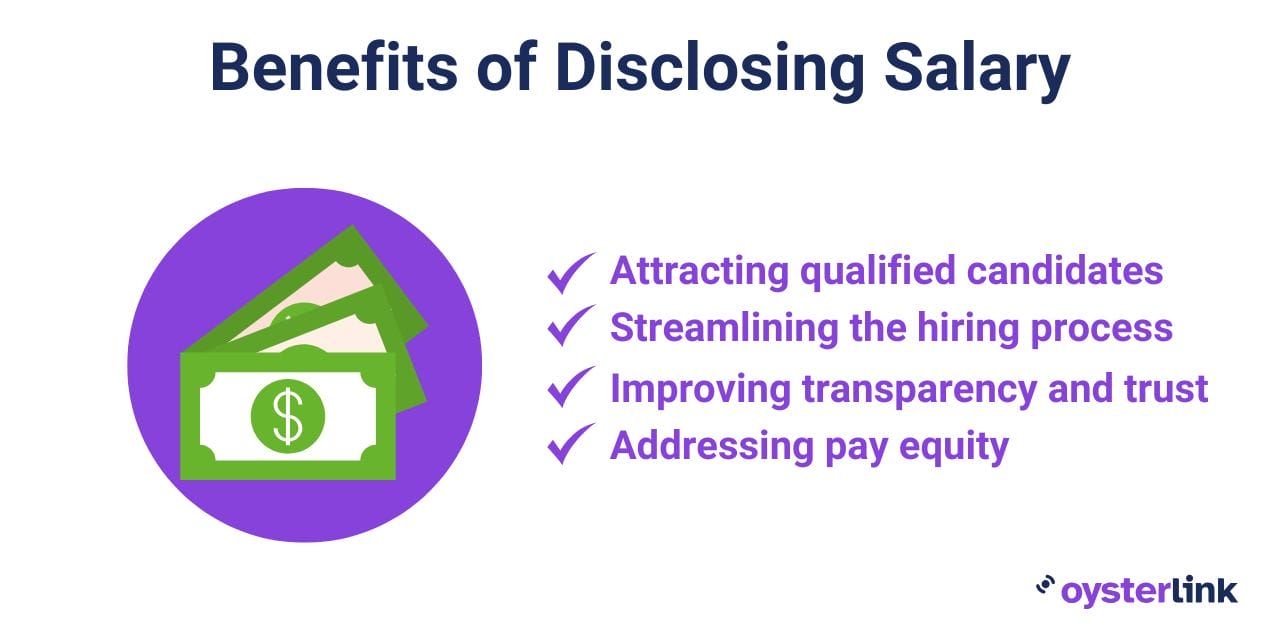This article discusses the significance of including salary details in restaurant job postings, its benefits, potential challenges and how employers can overcome them.
The Importance of Salary in Job Postings
Compensation details are crucial for attracting qualified candidates and streamlining recruitment in the restaurant industry.
According to several job search platforms, most candidates look at compensation and benefits to determine if a role aligns with their financial expectations and career goals.
Failing to include salary details in your job posting risks deterring qualified applicants and losing them to competitors who are transparent about offering competitive pay.
Beyond attracting qualified candidates, including salary information can also save time during recruitment. Applicants who apply knowing the salary range are more likely to accept an offer, reducing lengthy negotiations and improving overall efficiency.

Benefits of Salary Disclosure in Job Postings
Aside from attracting qualified candidates and streamlining the hiring process, disclosing salary information in job postings offers several other advantages for employers, including improving transparency and addressing pay equity.
Open communication about compensation fosters a culture of transparency, enhancing employee trust and satisfaction. Meanwhile, publicly stating salary ranges demonstrates a company’s commitment to fair compensation practices and helps reduce potential biases in the hiring process.

Laws Affecting Salary in Job Listings
Beyond the benefits of including salary in job postings, there are now laws governing this practice.
In recent years, an increasing number of states and cities in the U.S. have implemented laws requiring employers to disclose salary ranges in job postings, reflecting a growing trend toward pay transparency.
For example, New York has enacted a law mandating employers with four or more employees to include salary ranges in all job postings.
As more states adopt similar legislation, employers must stay informed about the legal requirements in their areas and adjust their hiring practices accordingly.
Compliance with these laws not only ensures legal adherence but also demonstrates a commitment to fair and equitable employment practices.
Challenges for Employers in Disclosing Salary in Job Postings
While disclosing salary information in job postings offers numerous benefits, it also presents unique challenges for employers in the restaurant industry, which often operates in a highly competitive and fast-paced environment.
One primary concern is competition. Restaurants, hotels and catering services worry that sharing salary ranges may provide competitors with valuable insights into their compensation strategies. This information could enable rivals to adjust their own pay structures to attract top talent, especially in high-demand roles like Chefs, Restaurant Managers or Event Planners.
Internal equity issues pose another challenge, as staff members often have varying levels of experience and responsibilities. Publicly listing salary ranges for new hires might lead to dissatisfaction among existing employees if they perceive pay disparities.
For instance, a long-standing Sous Chef might feel undervalued upon discovering that new hires are being offered similar or higher pay. Such situations could harm morale, disrupt team dynamics and increase turnover rates in an industry already struggling with retention.
Flexibility in salary negotiations is also a significant consideration. Many restaurant employers prefer to keep compensation details private to allow for adjustments based on a candidate’s skills, experience and willingness to work demanding or non-standard schedules. Publishing a specific salary range may limit this flexibility, potentially discouraging highly qualified candidates who perceive the range as a fixed cap on earnings.
Finally, determining appropriate salary ranges in the restaurant industry can be particularly complex. Roles often vary widely, even within the same organization, based on factors such as location, seasonality and the size or type of establishment.
For example, a General Manager’s salary at a boutique hotel in a rural area may differ significantly from that of a similar role at a high-end urban hotel. Employers must conduct market research to ensure their salary ranges are competitive, equitable and reflective of the role’s demands.
Strategies for Effective Salary Disclosure in Job Postings
To maximize the benefits of salary disclosure in job postings while addressing potential challenges, employers can adopt several effective strategies.
Conducting thorough market research is essential to ensure that the posted salary ranges are competitive and align with industry standards.
Providing context around salary information — such as highlighting additional benefits, growth opportunities and company culture — can help present a complete view of the total compensation package.
Employers should also prepare for internal discussions by developing a clear communication plan to address employees' questions about pay equity and career progression.
Finally, regularly reviewing and updating salary ranges ensures that job postings remain reflective of market trends and internal adjustments.
Measuring the Impact of Salary Disclosure in Job Postings
To assess the effectiveness of including salary information in job postings, employers can track various metrics:
- Application rates: Monitor changes in the number and quality of applications received for positions with disclosed salary ranges.
- Time-to-hire: Measure whether salary disclosure affects the overall duration of the hiring process.
- Offer acceptance rates: Track the percentage of job offers accepted when salary ranges are provided upfront.
- Employee satisfaction and retention: Assess whether salary transparency contributes to improved employee satisfaction and reduced turnover rates.
- Diversity and inclusion: Evaluate the impact of salary disclosure on attracting a diverse pool of candidates and promoting pay equity.
Salary Information for Job Ads
The inclusion of salary information in job postings is becoming increasingly important in today's job market. While it presents challenges for employers, the benefits of transparency often outweigh the potential drawbacks.
By adopting thoughtful strategies for salary disclosure, companies can improve their recruitment processes, attract qualified candidates and foster a culture of trust and fairness in the workplace.
As pay transparency laws continue to evolve and job seekers place greater emphasis on compensation information, employers who embrace salary disclosure in their job postings will be better positioned to succeed in the competitive talent landscape.










Loading comments...